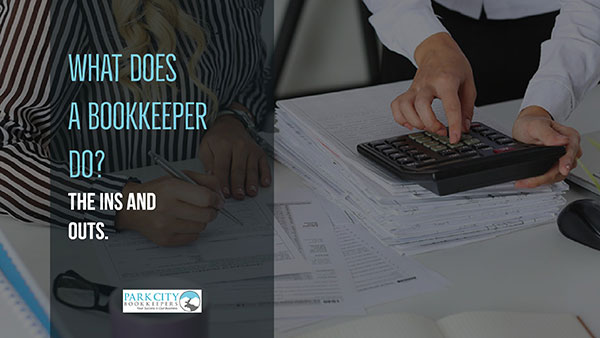Bookkeepers play a crucial role in the financial affairs of any business and their activities vary based on the size of an organization. As a business owner, perhaps you require assistance with your books and are wondering whether you need a bookkeeper. Before you decide, you may want to know what does a bookkeeper do?
In general, a bookkeeper is someone who collects, classifies and records the financial information of a business, produces reports, pays bills, and takes care of payroll, among other similar tasks. On a day-to-day basis, here are some of the tasks you can expect a bookkeeper to handle:
What does a bookkeeper do to help provide structure to an organization?
- Set up a chart of accounts
A chart of accounts is a structure which shows all the different accounts a business operates, and the different classes they fall into. As a small business owner, maintaining all these accounts on a daily basis can be time-consuming, and without professional help, the chances of errors and mistakes increase. Hiring a bookkeeper from the start is a smart way to ensure that your company’s chart of accounts is properly set up.
What does a bookkeeper do to organize business activities?
- Clean up messy books
The best practice, as suggested in the previous point, is to hire a bookkeeper for your accounts right from the start. However, if you have already attempted this on your own and have ended up with a mess, the next best thing to do is hire a professional bookkeeper to help get things back on track and avoid any possible penalties, fines or future headaches.
- Audit transactions and records
Bookkeepers, particularly in larger organizations with substantial financial operations, may be tasked with auditing the financial transactions of specific departments or of the whole organization in order to prevent fraud or costly mistakes. A bookkeeper who performs audits is sometimes also called an audit clerk.
- Compile records
Every transaction that a business undertakes must be properly recorded for a number of important reasons. First, proper records are critical for tax obligations and to avoid potential penalties and tax audits from the IRS. Secondly, accurate records are essential for making sound financial decisions for any business. There may also come a point when you, as the owner, decide to sell the business, and any potential buyers will want to go over your books.
What does a bookkeeper do on a daily or monthly basis for businesses?
- Produce reports
The records compiled by bookkeepers are essential, as discussed in the previous point. However, raw financial data is of little use to anyone until it is presented in the form of reports. This is one of the most crucial parts of the financial process for any business. This is another thing bookkeepers do. They compile the financial data they have collected into financial reports such as a profit and loss statement, balance sheet, cash flow statement, statement of retained earnings and so on.
- Perform reconciliations
Bookkeepers ensure that various accounts or records which concern the same item, such as deposits into a particular bank account, are in agreement. If there are substantial differences, they indicate that an error has been made somewhere, and a bookkeeper can then locate and possibly rectify it.
- Payroll services
For medium-sized or larger businesses, payroll services are very important. As the name implies, this is where a bookkeeper accurately calculates wages, factors in the relevant deductions calculate payroll taxes, and makes the relevant payments to employees as and when due.
- Pay bills/Receive payments
Bookkeepers may be charged with paying the company’s bills to ensure timely payments and avoid late fees. In general, bookkeepers also monitor accounts payables and accounts receivable to ensure that monies owed and due are settled accordingly. In larger companies, there may be bookkeepers dedicated solely to these tasks, bearing such titles as accounts payables/receivables clerk.
- Operate accounting software
Apart from being financially knowledgeable and possessing good numeracy skills, the modern bookkeeper has to be tech-savvy enough to operate accounting software. Bookkeepers should be able to install and set up the software, and if required, train the business owner or the staff to use it as necessary.
What skills do bookkeepers have?
Typically, bookkeepers must posess strong numerical competence and a working knowledge of Microsoft Excel or other spreadsheet programs in order to compute and compile meaningful reports. Bookkeepers also (and should) have strong communication skills since they need to convey the financial state of the business to its stakeholders.

